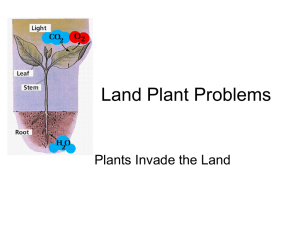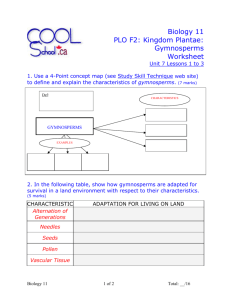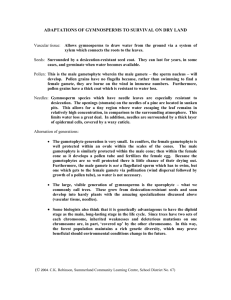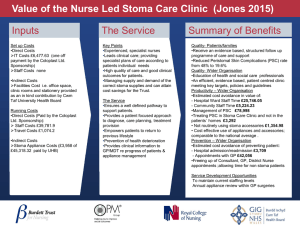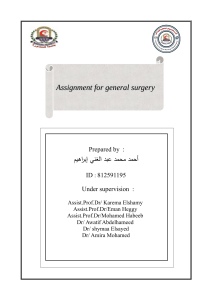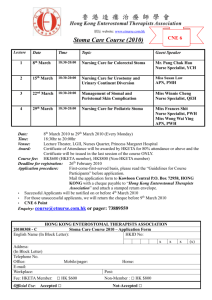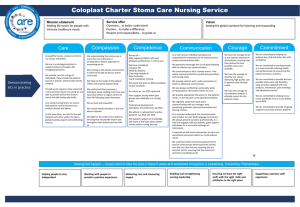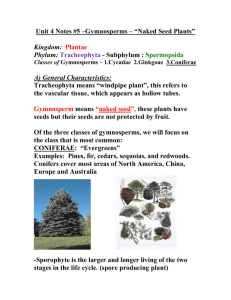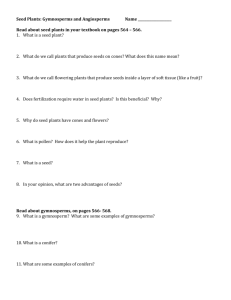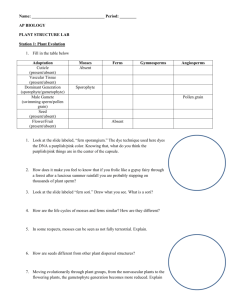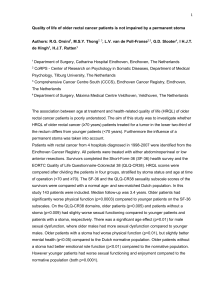Gymnosperm survival on land
advertisement
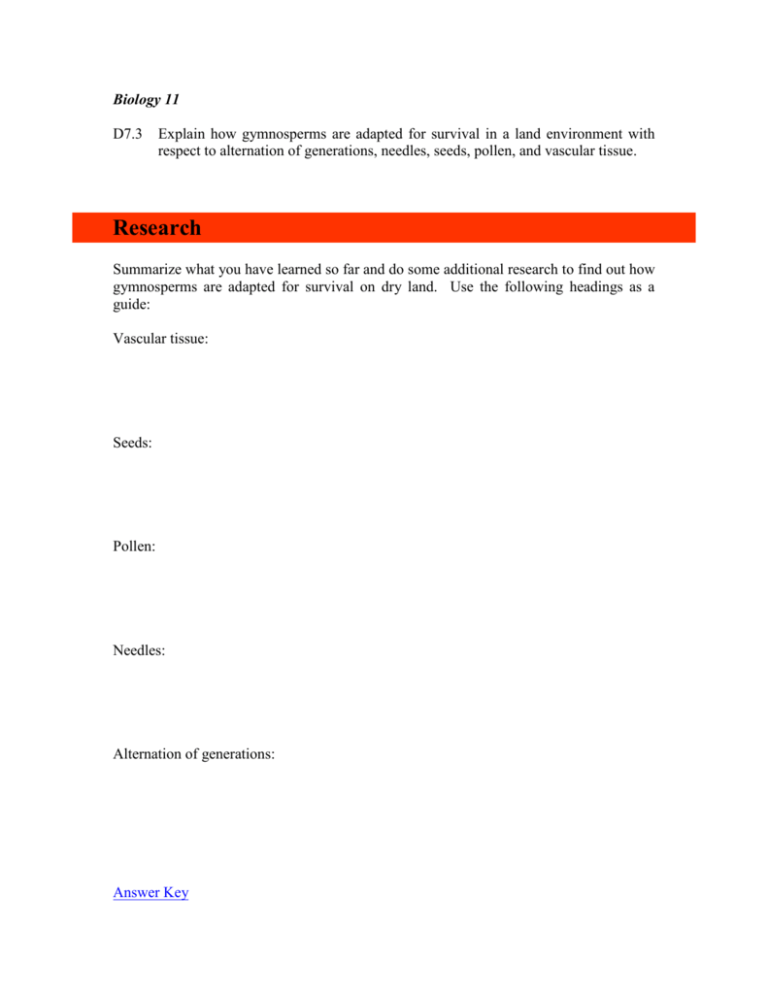
Biology 11 D7.3 Explain how gymnosperms are adapted for survival in a land environment with respect to alternation of generations, needles, seeds, pollen, and vascular tissue. Research Summarize what you have learned so far and do some additional research to find out how gymnosperms are adapted for survival on dry land. Use the following headings as a guide: Vascular tissue: Seeds: Pollen: Needles: Alternation of generations: Answer Key Laboratory Assignment You may wish to refer to the illustrations of stomata (sg. stoma) on pages 503 and 504 of Biology, 3rd ed. (Miller & Levine) while you do this lab work. Using the compound microscope, examine a prepared slide of a pine needle in crosssection. Locate a sunken stoma. Make a careful pencil sketch of this structure on a piece of white unlined paper. Label your drawing to the best of your ability. Answer the following questions and hand them in to your teacher for marking, along with your drawing. 1. What is the function of a plant's stomata? 2. What is the advantage to a pine in having the stoma located in sunken pits? 3. Label the guard cells in your sketch, if you have not done so already. What is their function? How do they work? What disadvantage does the plant experience when water is in short supply? (© 2004. C.K. Robinson, Summerland Community Learning Centre, School District No. 67)
